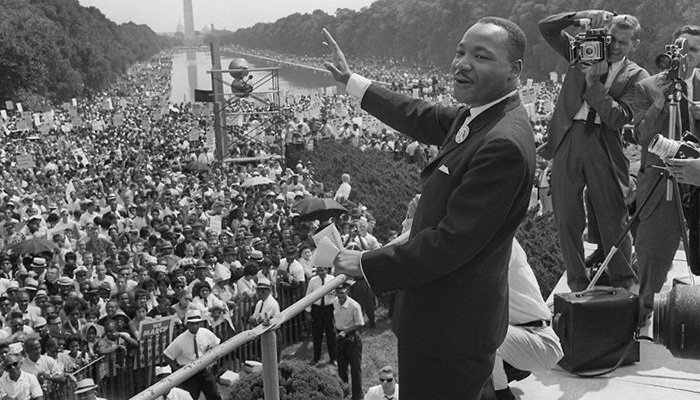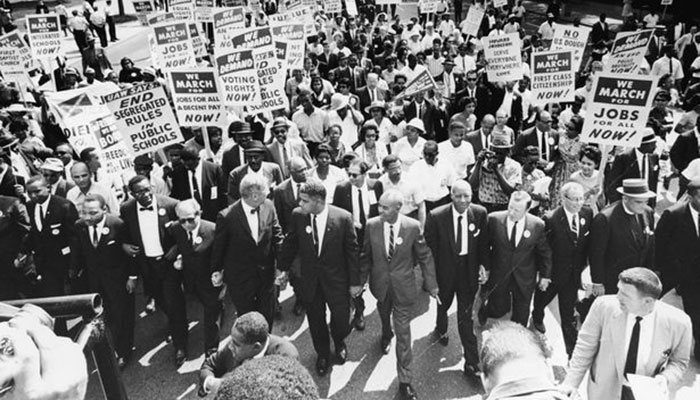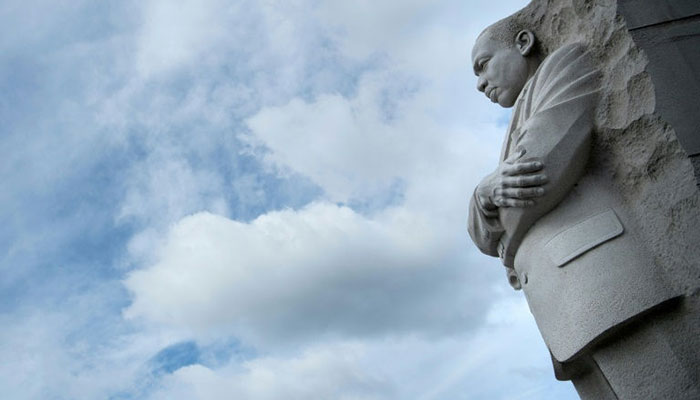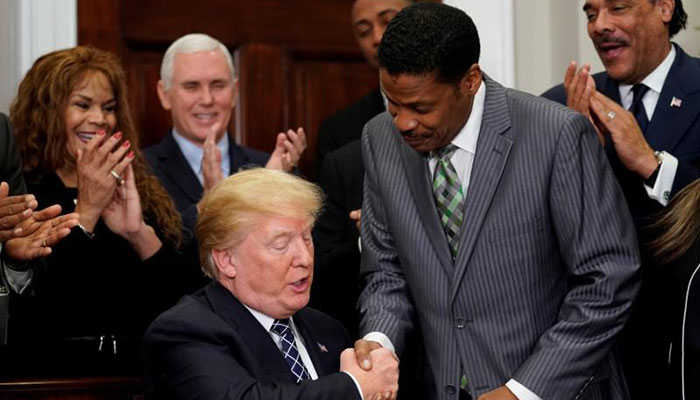Remembering Martin Luther King on his 50th death anniversary
April 04, 2018

Martin Luther King Jr was a social activist and Baptist minister who played a key role in the American civil rights movement from the mid-1950s until his assassination in 1968.
His death put America through a period of mourning, reflection and anger.
He is best remembered for his “I Have a Dream" speech which he gave at the steps of Lincoln Memorial in the National Mall in Washington DC, to a crowd of 250,000 strong; the speech is considered the culmination of a great march for justice.

A sole champion of rights, he played a major role in opposing the Vietnam War, supported striking workers and demanded economic justice for poor Americans, black and white. All this saw him as a threat, however, that did not stop him.
His civil rights campaign played a key role in ending racial segregation and the denial of voting rights to African Americans in the southern states. It was also responsible for creating a shift in attitudes across the US.
In 1964 King was awarded the Nobel Peace Prize.
Key dates in Martin Luther King’s life
– January 15, 1929: King is born in Atlanta in the southern state of Georgia.
– June 18, 1953: He marries Coretta Scott and they go on to have four children.
– December 1955: A pastor at the Baptist Church in Montgomery, Alabama, King takes the lead of a year-long boycott against racial segregation on local buses. It results in an end to such segregation and earns him a national profile.
– April 1963: Arrested after demonstrations against racial segregation, King writes his famous “Letter From a Birmingham Jail” in which he outlines his non-violent resistance to racism.
– August 1963: King pronounces his inspiring “I Have a Dream” speech to about 250,000 people at the “March on Washington for Jobs and Freedom.”
– October 1964: Aged 35, he becomes the youngest Nobel Peace Prize winner at the time for his non-violent resistance.
– 1966: King moves to the slums of Chicago to extend the civil rights movement into the north of the country.
– 1967: He denounces the war in Vietnam and expands his campaign against poverty in the United States.
– April 4, 1968: King is assassinated at age 39 by James Earl Ray, who shoots King while he is standing on a motel balcony in Memphis, Tennessee.
50 years later
King died of an assassin’s bullet in Memphis, Tennessee, on April 4, 1968, ending his leadership of a nonviolent campaign for equal rights for African-Americans. His death shook the United States in a year that would also bring race riots, violent anti-war demonstrations and the assassination of presidential candidate Robert Kennedy.

A half-century after the assassination of Rev Martin Luther King Jr, US civil rights leaders say they are fearful President Donald Trump could reverse progress made on civil rights in the United States since King’s death.
The racism that King’s leadership helped subdue has returned, said E Lynn Brown, a former associate of King’s who is bishop of the Christian Methodist Episcopal Church near Memphis, Tennessee, pointing to a resurgence of white supremacists since Trump launched his campaign for president.
“They were afraid to show their ugly heads in a prominent way. Now, Trump has given them a voice and created a climate where they are not afraid to show their ugly heads,” Brown said.
The White House did not respond to a request for comment.
King died of an assassin’s bullet in Memphis, Tennessee, on April 4, 1968, ending his leadership of a nonviolent campaign for equal rights for African-Americans. His death shook the United States in a year that would also bring race riots, violent anti-war demonstrations and the assassination of presidential candidate Robert Kennedy.
To be sure, Trump praised King in glowing terms upon the celebration of King’s birthday in January, and the president has pointed to historically low unemployment for African-Americans as evidence that blacks are benefiting from his presidency.
Black leaders were proud to have Barack Obama as president and some have lamented that Trump succeeded him.
The maverick Republican has drawn criticism for praising pro-Confederate demonstrators in Charlottesville, Virginia, last August as “some very fine people.” He has also picked Twitter fights with black athletes and appointed few minorities to high office.

Some conservative African-Americans have seen the critique of Trump as unfair, saying white supremacists, neo-Nazis and the Ku Klux Klan existed while Obama was president.
“We have to be very careful at pointing fingers at the White House when in fact racial progress happens at our house,” said US Senator Tim Scott, a Republican from South Carolina.
Even so, Scott criticized Trump for his comments after Charlottesville as unhelpful but said the history of race relations was unrelated to the occupant of the White House.
“We’re too quick to say that someone is racist if we don’t hear in their words what we want to hear,” said Ward Connerly, a conservative African-American who has long fought against racial preferences for minorities. “There are many things I think you can say about Trump, but I don’t think that he’s a racist.”
Still, some civil rights leaders have not forgiven Trump for his reaction to the Unite the Right rally in Charlottesville, in which white nationalists demonstrated to preserve pro-slavery monuments and neo-Nazis chanted anti-Semitic slogans.
After a white nationalist killed a counter-demonstrator when he drove his car into a crowd, Trump said there was blame “on many sides.”
“When I heard Mr. Trump say there were good people, some good people on both sides, and saw the violence in Charlottesville, it made me cry. I really cried,” said US Representative John Lewis, a Democrat from Georgia who endured life-threatening injuries as a civil rights leader in the 1960s.
“But it also made me more determined to do all I could to help our country move forward,” Lewis said.







